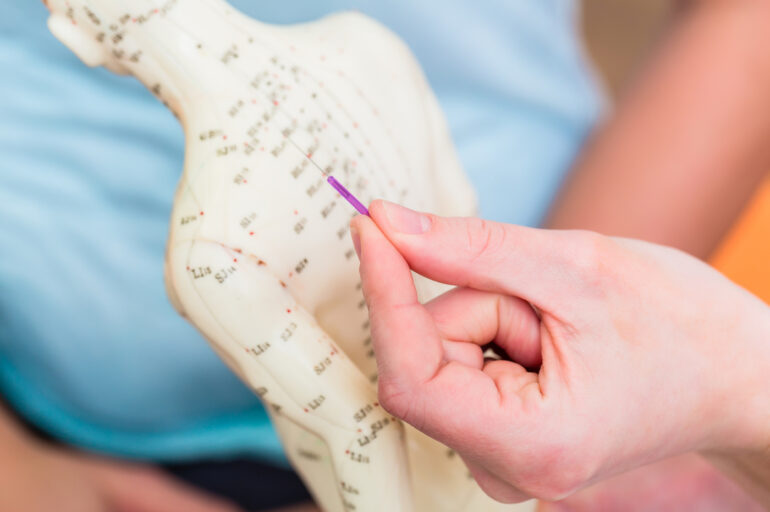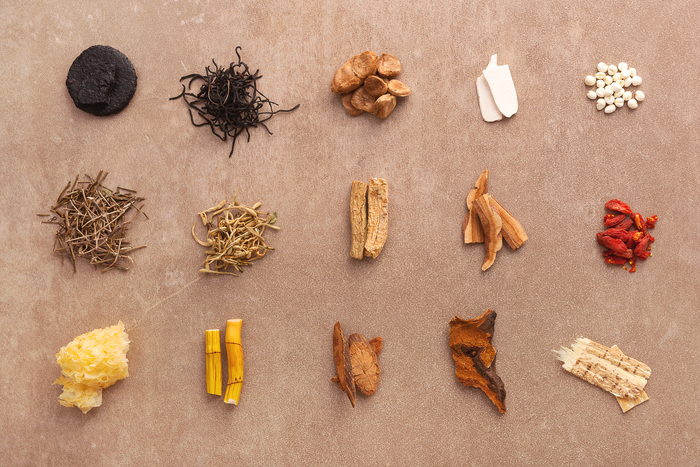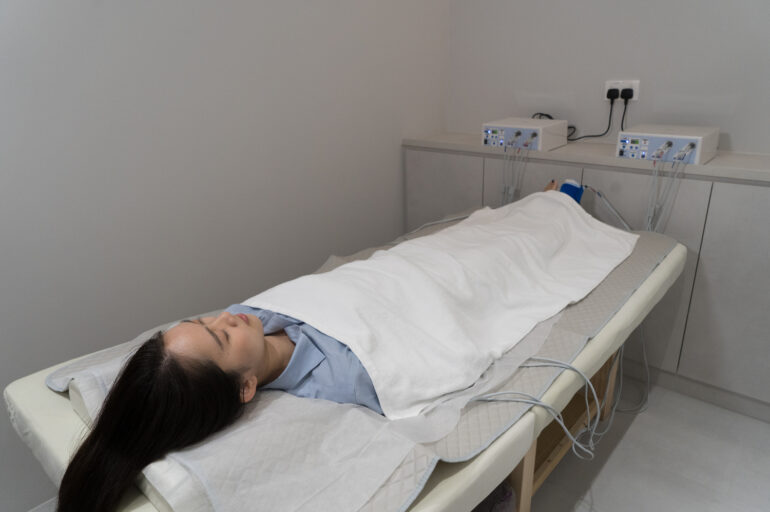Experiencing the loss of a pregnancy is a deeply emotional journey for couples aiming to conceive. Unexplained miscarriages add layers of confusion and heartache, leaving many seeking answers and support. In these challenging times, it’s crucial to understand the causes, signs and steps to take after a miscarriage, especially if you are looking to optimise the chances of your next pregnancy.
Understanding Recurrent Miscarriages
Recurrent miscarriages, where a couple experiences at least two consecutive miscarriages, pose a significant challenge for those hoping to start a family. Despite advances in medical knowledge, about half of recurrent miscarriages remain unexplained, adding emotional distress and uncertainty to the journey to parenthood[1].
The causes of recurrent miscarriages can stem from various factors affecting the woman, man, fetus, or placenta[2]. Women may face issues like abnormalities in the uterus or cervix, chromosome abnormalities, or poorly controlled chronic conditions such as diabetes, hypertension, lupus and thyroid disorders, all of which can contribute to pregnancy loss[2]. Similarly, genetic or structural abnormalities in the fetus can greatly affect pregnancy outcomes[2]. While the causes from the father’s side are less clear, a higher risk of miscarriage is linked with abnormal semen analysis[2]. Despite thorough medical evaluations, a significant number of recurrent miscarriages defy clear diagnosis, highlighting the complexity of reproductive health.
Additionally, certain risk factors like extreme weight (either underweight or overweight), unhealthy habits such as smoking, and excessive caffeine intake can increase the likelihood of miscarriage[3]. Lifestyle choices thus play a pivotal role in overall wellness and reproductive health.
The risk of another miscarriage after the first one occurs is higher, approximately 20%[4]. Therefore, it is crucial to focus on healing both physically and emotionally during this time before conceiving again. Deciding when to try again is a personal decision, and you may want to discuss the timing of your next pregnancy with your healthcare provider. While Western medicine does not strictly recommend a waiting period before trying again, some medical professionals suggest waiting for a certain amount of time, typically three months for the uterus to recover and menstrual cycles to normalise[5].
TCM self-care tips after a miscarriage
After a miscarriage, TCM strongly recommends a period of “mini confinement” for recovery. This practice encourages ample rest and allows the body to restore its delicate balance, including addressing any potential hormonal imbalances that may have contributed to the loss. It is completely understandable to feel lost and helpless in the wake of a miscarriage. However, this restorative confinement period is crucial for promoting physical healing and emotional well-being. By taking the time to nurture yourself, you give your body the best chance to regain its equilibrium before trying to conceive again.
Read What Should I Do After A Miscarriage? for guidance on post-miscarriage care and self-care tips from a TCM perspective.
Identifying Root Causes with Traditional Chinese Medicine (TCM)

TCM provides a distinctive approach to addressing unexplained miscarriages by identifying and treating underlying imbalances in the body. During a consultation, TCM practitioners conduct a thorough evaluation, which includes pulse diagnosis, tongue examination, inquiries about the frequency and timing of miscarriages, as well as menstrual history. This comprehensive assessment also involves analysing other factors such as the basal body temperature (BBT) curve, menstrual flow, colour, clot formation and mucus changes, all of which contribute to a deeper understanding of your body. While these questions may be sensitive, open and honest communication is crucial for the practitioner to develop a personalised treatment plan tailored to your unique condition, aiming to address the underlying imbalances effectively.
From a TCM standpoint, the primary causes of recurrent miscarriage in TCM are deficiencies in Qi, Blood or both in the Kidney [6,7]. The Kidney plays a crucial role in growth, development, and reproduction, as it stores the essential Qi that warms and activates all other systems in the body. When there is sufficient Qi and Blood in the Kidney, the womb becomes a warm, safe, and comfortable environment where an embryo or fetus can thrive[6,7]. However, when there is insufficient Qi or Blood the embryo or fetus cannot be sustained, resulting in miscarriage[6,7]. TCM practitioners identify these deficiencies through detailed history taking, pulse diagnosis and tongue examination. Based on these assessments, they deliver personalised treatments aimed at restoring the balance in the Kidney.
TCM treatments to help optimise chances of conception after a miscarriage
Before trying to conceive again, ladies may seek guidance from TCM practitioners to facilitate a healing process for both mind and body. Here are some recommendations TCM practitioners may suggest:

Herbal medications are often used to nourish the Kidneys, improve blood circulation and provide warmth to the womb to improve female health. Common herbal concoctions like Wu Zi Yan Zong 五子衍宗, Si Wu Tang 四物汤 and Ba Zhen Tang 八珍汤 are often prescribed for their ability to nourish blood and kidney essence. These formulations usually feature herbs such as Dang Gui 当归, Shu Di Huang 熟地黄, Du Zhong 杜仲 and Xu Duan 续断, which serve to strengthen the foundation of female health. Depending on individual needs, a personalised herbal concoction is prescribed to address specific imbalances within the body.

Acupuncture involves the insertion of needles into specific points on the body, known as acupoints. This technique aims to improve the flow of Qi (energy) and blood, addressing imbalances in the body and alleviating emotional stress. Common acupoints used for reproductive issues include Qi Hai (CV6), Guan Yuan (CV4), San Yin Jiao (SP6), Xue Hai (SP10), and others. Moxibustion is a technique that involves burning moxa (a dried herb) near acupoints on the stomach to provide warmth and improve circulation to the womb.
Tech-enhanced therapies to help optimise chances of conception after a miscarriage
Tech-enhanced therapies can complement TCM treatments in post-miscarriage care by optimising the body’s wellness in preparation for pregnancy.
Electro-Lymphatic Therapy (ELT)

Electro-Lymphatic Therapy (ELT) is a gentle and non-invasive technique that can help support the proper flow and drainage of the lymphatic system. The lymphatic system is an essential component of the female reproductive system, affecting pregnancy and various gynaecological processes[8]. By facilitating lymphatic drainage, ELT enhances blood circulation, fostering tissue healing and recovery following a miscarriage[9,10]. Additionally, improved lymphatic flow may contribute to hormonal balance, a crucial element in reproductive health[11].

CPT harnesses the power of reducing electrons, akin to the antioxidants found in nature. These electrons, reminiscent of those abundant near waterfalls or in grounding practices, create an internal environment conducive to pregnancy by neutralising harmful free radicals [12]. Furthermore, they bolster blood circulation, aid tissue healing and mitigate underlying inflammation that might contribute to a healthier environment for conception[13]. Additionally, these negatively charged particles promote better sleep quality by facilitating easier sleep onset and lengthening deep sleep[14]. This enhancement in both mental and physical well-being serves as a cornerstone in preparing for successful conception.
Dietary and lifestyle adjustments

Dietary and lifestyle adjustments are crucial components of TCM in fostering an optimal environment for a healthy pregnancy. Our holistic approach addresses both physical and emotional imbalances that may contribute to recurrent miscarriages, encapsulated in the acronym REES – Rest, Eat, Exercise, and Sleep.
- Rest
Prioritising ample rest and avoiding excessive exertion is essential. Allowing your body sufficient time to recuperate conserves energy and facilitates the restoration of balance.
- Eat:
Dietary adjustments involve embracing a nourishing diet rich in whole, nutrient-dense foods to support reproductive health and address any deficiencies. Incorporate ingredients such as Goji berries and red dates, readily available in markets, known for nourishing blood and kidney essence.
- (Mild) Exercise:
Engaging in gentle exercises such as Qi Gong, light yoga or walking promotes relaxation, enhances circulation and effectively manages stress levels.
- Sleep
Cultivating practices like meditation, deep breathing or seeking emotional support nurtures emotional equilibrium and promotes better sleep quality. Maintaining a calm and centred state of mind aids healing and prepares the body for pregnancy.
In the journey toward parenthood, TCM acknowledges the profound interconnectedness of mind, body, and spirit. Embracing self-care practices rooted in this holistic approach can significantly enhance your overall well-being, nurturing the optimal conditions for a successful and healthy conception. When navigating the complexities of recurrent miscarriage, seeking professional guidance is paramount. Consulting with a qualified TCM practitioner offers personalised treatment strategies tailored to your unique needs, fostering a path toward healing and resilience.
Your healing is the most important!
Experiencing unexplained miscarriages can be incredibly painful, leaving couples feeling adrift and unsure about their path to becoming parents. Seeking holistic care and exploring complementary approaches like TCM can provide a ray of hope and healing. By addressing the root causes and offering emotional support, TCM provides a compassionate and tailored approach to navigating the difficulties of unexplained miscarriages.
When integrated with modern therapeutic techniques, TCM provides a comprehensive approach that synergistically addresses both the physical and emotional aspects of fertility challenges. Through modalities such as herbal medicine and acupuncture, TCM supports fertility across all stages, complementing conventional treatments like IVF and IUI [15, 16]. By harnessing the combined wisdom of ancient traditions and modern innovations, TCM empowers individuals on their journey toward parenthood, offering hope and holistic healing.
At Oriental Remedies Group, most of our physicians are trained in both Biomedical Science and TCM at Nanyang Technological University (Singapore) and China for a minimum of 5-8 years before being certified to practise in Singapore. If you or your loved one is looking for a holistic way to care for yourself during this period, consult our physicians at +65 8087 0486 for a targeted treatment plan.
—
This article is written by Physician Doong Jing Yi (Oriental Remedies Group, Singapore), a registered TCM physician certified by the Traditional Chinese Medicine Practitioners Board (TCMPB).

Disclaimer:
The content on this page is for information and educational purposes only. Such medical information may relate to disease, injury, drugs and other treatments, medical devices and/or health products. Medical information does not amount to advice, and if advice is needed an appropriate professional help should be sought. The disclaimer asserts that no warranties or representations are given in respect of the medical information, and that the website operator should not be held liable if a user suffers any injury or loss after relying upon the medical information.
Any devices used for technology-enhanced therapies are intended for use only for general well-being purposes or to encourage or maintain a healthy lifestyle, and is not intended to be used for any medical purpose (such as the detection. diagnosis, monitoring, management or treatment of any medical condition or disease). Any health-related information provided by this device or software should not be treated as medical advice.
References:
[1] https://www.ncbi.nlm.nih.gov/books/NBK554460/
[4] https://www.ncbi.nlm.nih.gov/pmc/articles/PMC3689170/
[6] https://www.ncbi.nlm.nih.gov/pmc/articles/PMC3689170/
[7] https://scholar.google.com/scholar_lookup?title=Zhong+Yi+Fu+Ke+Xu&author=B+Ma&publication_year=2006&
[8] https://www.ncbi.nlm.nih.gov/pmc/articles/PMC7089000/
[9] https://pubmed.ncbi.nlm.nih.gov/28395985/
[10] https://pubmed.ncbi.nlm.nih.gov/2223323/
[11] https://pubmed.ncbi.nlm.nih.gov/33573286/
[12] https://pubmed.ncbi.nlm.nih.gov/18047442/
[13] https://www.sciencedirect.com/science/article/pii/S1550830719305476

